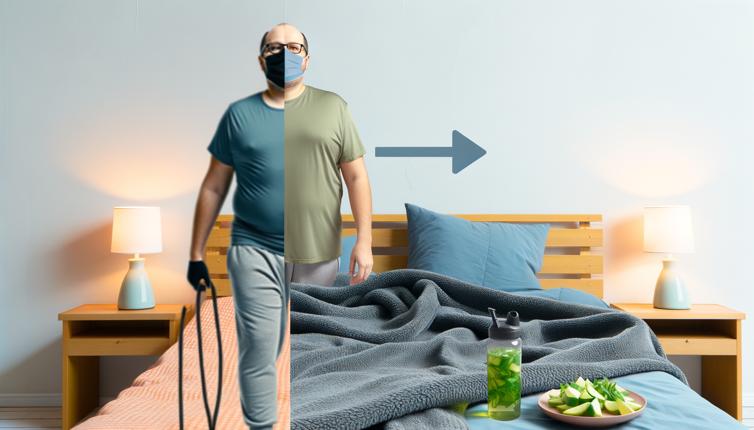Establish a Bedtime Routine
Our bodies thrive on routine, and having a consistent bedtime routine can signal to your body that it is time to wind down and prepare for sleep. Establish a relaxing routine before bedtime, such as taking a warm bath, reading a book, or practicing relaxation techniques like deep breathing or meditation. Avoid electronics, caffeine, and stimulating activities in the hour leading up to bedtime.
Create a Comfortable Sleep Environment
Your sleep environment can greatly impact the quality of your sleep. Make sure your bedroom is cool, dark, and quiet. Invest in a comfortable mattress, pillows, and bedding that suit your preferences. Use blackout curtains or an eye mask to block out any light, and consider using earplugs or a white noise machine to drown out any noise that may disrupt your sleep.,Keep your bedroom clutter-free and create a relaxing atmosphere. Consider incorporating calming scents like lavender or chamomile with essential oils or a room diffuser.,If you have trouble with allergies or asthma, make sure to keep your bedroom clean and free of dust, pet dander, and other potential allergens that may affect your sleep.
Stick to a Consistent Sleep Schedule
Our bodies have an internal clock that regulates our sleep-wake cycle, also known as the circadian rhythm. It is important to maintain a consistent sleep schedule by going to bed and waking up at the same time every day, even on weekends.,By sticking to a regular sleep schedule, you are training your body to recognize when it is time to sleep and when it is time to wake up. This can help improve the quality of your sleep and make it easier to fall asleep and wake up naturally, without relying on alarms or stimulants like caffeine.
Create a Relaxing Bedtime Environment
Your bedroom should be a relaxing and peaceful space that is solely dedicated to sleep and intimacy. Avoid using your bedroom for work, watching television, or engaging in other stimulating activities. By associating your bedroom with sleep, you are conditioning your mind to recognize this environment as a place of rest.,Make sure your bed and pillows are comfortable and supportive. Choose bedding that feels cozy and inviting. Consider investing in a high-quality mattress and pillows that cater to your individual sleep preferences.
Conclusion
By implementing these tips into your nightly routine, you can improve the quality of your sleep and wake up feeling more rested and rejuvenated. Remember that everyone is different, so it may take some trial and error to find the strategies that work best for you. If you continue to struggle with getting a good night's sleep, it is recommended to consult with a healthcare professional for further guidance and support.









